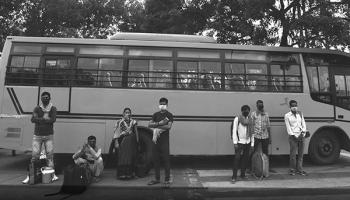
Read Southern Voice and OECD's piece on 'Why we need to build trust and guarantee civic space to deal with global challenges'.
The first year of the pandemic saw a pause in popular protest, which was on the rise in 2019. Now civil unrest remains below pre-pandemic levels, but the lifting of pandemic-era restrictions and the continued cost-of-living squeeze might mean that protests may yet increase. We are learning that confidence can easily break and is difficult to rebuild.
Many national governments failed to ensure the uptake of virus control measures due to lack of trust. So, it was often local authorities on the front line that stepped in. In certain cases, national governments used the power of local actors and community interventions as a springboard for more effective and inclusive responses at larger scale. Think, for instance, about Thailand. An “army” of a million village health volunteers went from door to door to understand and respond to households’ specific needs. Or Bangladesh, where a “community masking” initiative, endorsed by community leaders such as imams, dramatically increased mask wearing in targeted villages. Additionally, across countries of all income levels, small, self-organised local organisations were quick to identify their communities’ needs. They provided and adapted solutions in the areas of health, food security, safety and education. In Peru, community kitchens served as first-responders. When food scarcity hit the majority of informal workers, these women-led initiatives were quick to answer.

